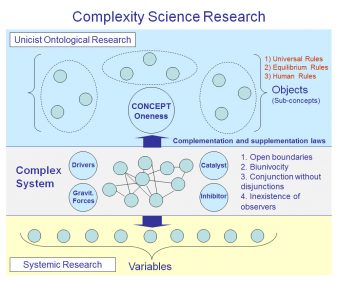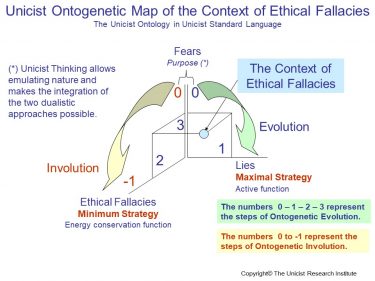Discovery of the Fallacies of Ethical Intelligence
Introduction
Multiple researches have been completed this year at The Unicist Research Institute after several years of application.
It has to be considered that the unicist research in complex adaptive environments requires real application with parallel research processes that allow developing the destructive tests needed to confirm the functionality of knowledge. That is why these researches demand several years to be completed.
The most significant researches that were completed were the unicist ontological structure of: ethical fallacies, the ontogenesis of fallacies, functional knowledge, lies, pseudo-change and evolutionary constructivism.
Although these researches are for private use, those that contribute to the solution of universal problems are opened to the market. There is a backlog of 106 ongoing researches.
The Fallacies of Ethical Intelligence
The research on human fallacies has been completed. The discovery of the ethical intelligence fallacies and the ontogenesis of fallacies has been completed after 33 years of research. It began in 1986.
The perception fallacies, strategic intelligence fallacies, logical thinking fallacies and conceptual fallacies had been confirmed 15 years ago, but the ethical intelligence fallacies required more time to confirm the functionality until the behavior became fully predictable.
The level of ethics that is necessary to develop an activity needs to be matched with the level of ethics an individual has. When the level of ethics of an individual is below the required level of ethics, the individual loses her/his groundings, and fears dominate her/his actions.
The first natural response is to lie and the second is to generate the necessary fallacies to avoid the discomfort zone produced by fear.
The purpose of ethical fallacies is to establish a parallel reality that sustains an individual’s comfort zone and avoids guilt and fears. An example of this can be observed in the behavior of addicts.
This research confirmed the need to develop destructive testing as the solution to avoid fallacious actions in complex adaptive environments, and the “management of fears” as the solution to deal with complex problems.
In the social and business world, this simply requires ensuring that the participants in a decision process have the necessary knowledge and ethics to approach a specific problem.
This research will be presented in the XI International Unicist Conference in March 2020 as a contribution to manage the fallacies fostered by the uncertainty introduced by the 4th Industrial Revolution.
Executive Committee
NOTE: The Unicist Research Institute has been, since 1976, the pioneer in complexity science research to deal with adaptive entities and became a private global decentralized leading research organization in the field of adaptive systems and environments. It was one of the precursors of the Industry 4.0 concept


